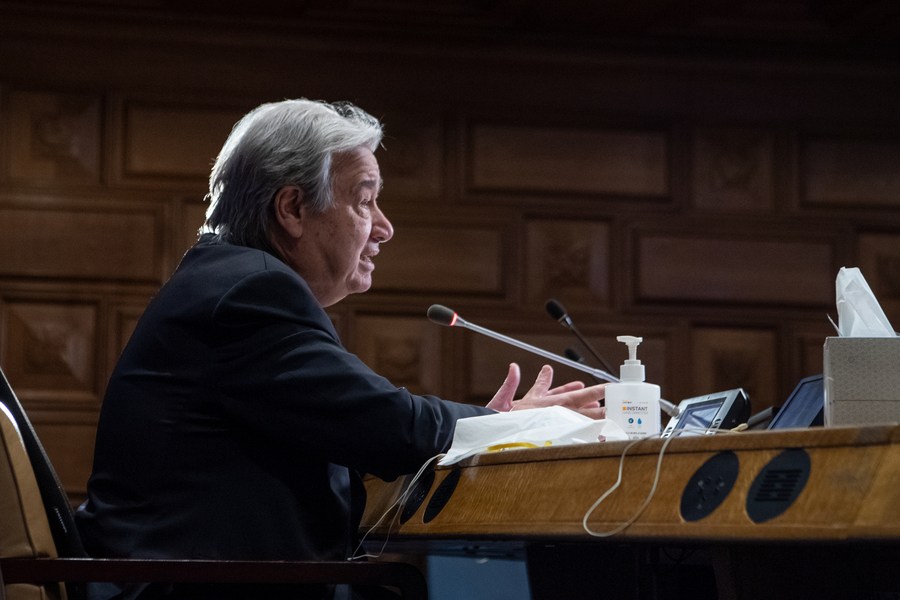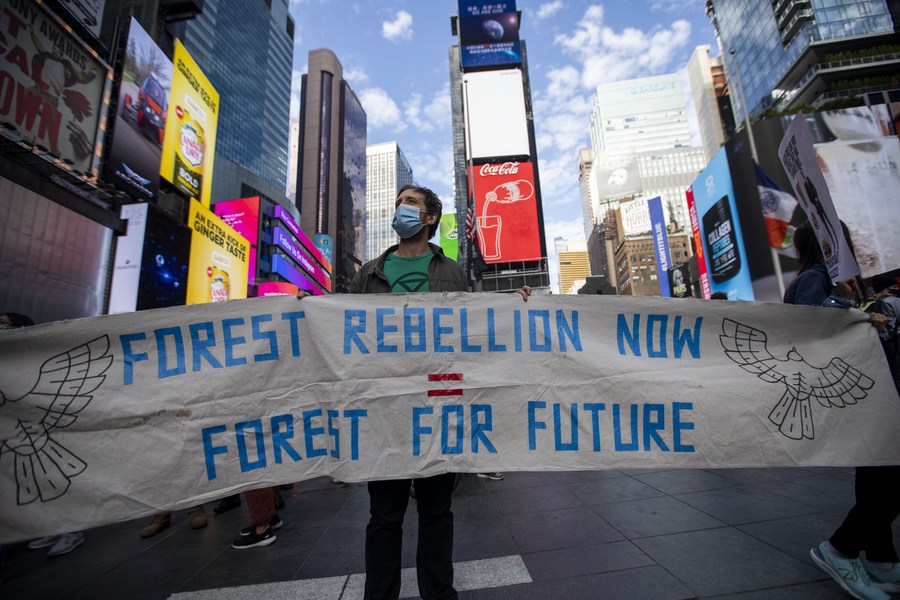
United Nations Secretary-General Antonio Guterres attends a virtual briefing to update on preparations for COP26, at the UN headquarters in New York, on Feb. 8, 2021. (Eskinder Debebe/UN Photo/Handout via Xinhua)
UN Secretary-General Antonio Guterres asked the mayors to commit their cities to net-zero emissions by 2050, make ambitious plans for the next decade, and bring their fellow mayors and local leaders on board.
UNITED NATIONS, April 16 (Xinhua) -- UN Secretary-General Antonio Guterres on Friday called on the world's leading mayors to take urgent climate action.
In a meeting with leading mayors supported by C40 Cities, a network of the world's megacities committed to addressing climate change, Guterres asked them to work with their national leaders to make sure their countries present ambitious Nationally Determined Contributions well before the UN Climate Change Conference in Glasgow in November.
"They need to hear from you that climate action coupled with policies for a just transition brings decent work and higher living standards and is supported by your residents," he told the mayors in a closed virtual meeting.
Guterres asked the mayors to commit their cities to net-zero emissions by 2050, make ambitious plans for the next decade, and bring their fellow mayors and local leaders on board.
He also asked the mayors to use the recovery from the pandemic to accelerate investment and implementation in clean, green infrastructure and transport systems.
"Cities are already succeeding on climate action," he said. "The challenge is to speed up and scale up. Key areas for action are phasing out coal, and investing in climate-smart buildings and transport systems."
Ending the use of coal is the single most important step the world can take to ensure temperature rise is limited to 1.5 degrees than pre-industrial levels. Cities stand to gain most from phasing out coal: clean air, green outdoor spaces, healthier people. By 2030, at least 80 percent of power generation in cities should be from renewable energy sources, he said.

A man takes part in a climate change protest in Times Square in New York, the United States, on Sept. 20, 2020. (Xinhua/Wang Ying)
Buildings are responsible for over a third of global energy consumption. To keep the world's 1.5-degree goal within reach, emissions from buildings must fall by 90 percent by 2050, compared with 2010 levels, he said.
City transport networks account for 14 percent of global emissions. There is a need for a revolution in urban planning and in urban mobility: including better fuel efficiency; zero-emission vehicles; shifts toward walking, cycling, public transport, and shorter commutes, said Guterres.
Adaptation cannot be the neglected half of the climate equation. There is a need to protect the most vulnerable neighborhoods and communities. Climate risks must be integrated into all decision-making around infrastructure, he said.
"We need a breakthrough on finance. Just 5 percent of urban climate investment goes to adaptation and resilience. This is why I have called for 50 percent of climate finance globally provided by developed countries and multilateral development banks to go to adaptation and resilience in developing countries," he said. ■




